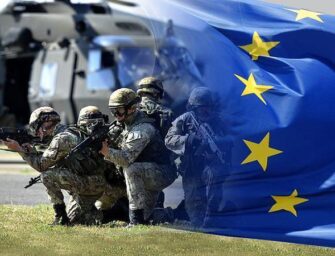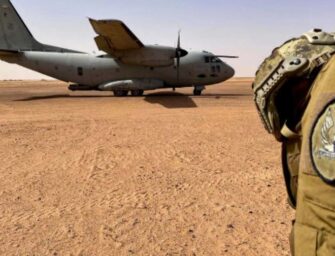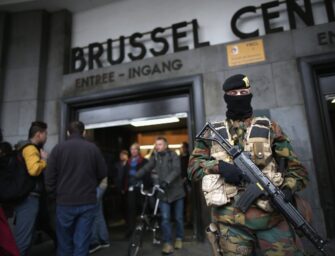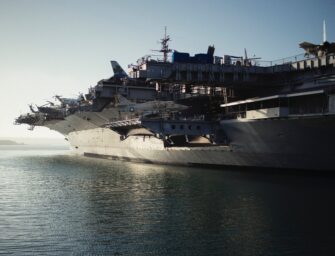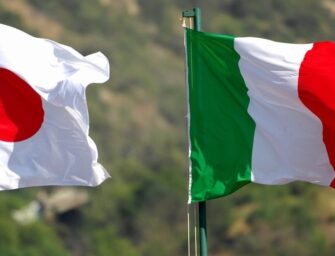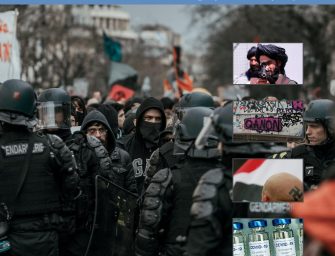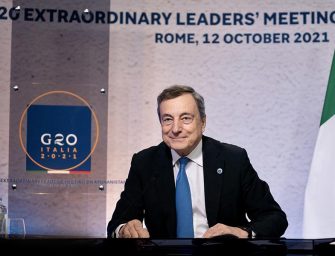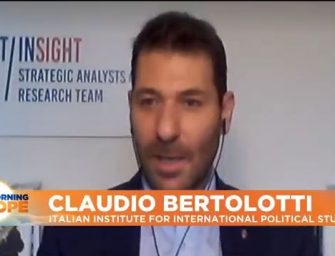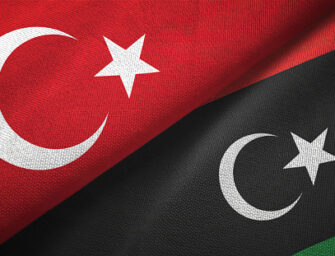WAR AND PEACE IN THE MEDITERRANEAN: understanding the Turkish escalation between the Chinese expansionism in Africa and the reshaping of Middle Eastern equilibria
by Andrea Molle
The renewed interest in the Mediterranean, too often considered as a secondary theater in the context of International Relations, derives from several medium and long-term processes that are affecting the global geopolitical equilibria. In particular, it is the consequence of an aggressive Chinese trade policy in Sub-Saharan Africa, which has intensified in the last decade and sees many African states, such as Kenya and Congo, for example, reduced to colonies or in a de facto subordination to China’s interests.
This dynamic is echoed by Beijing’s desire to complete its Belt and Road Initiative, affirming itself as a privileged trading partner of the most important powers within the EU to force it in a relationship of strong dependence. This scenario is made possible by the vacuum created with the protectionist and isolationist turn of the USA led by Donald J. Trump, who seems to lack any coherent international strategy. Moreover, it is a consequence of the lack of a coordinated European strategy in foreign affairs, as demonstrated by the recent Italian interest in becoming a closer partner to China independently from its partners’ choices.
The intensifying of migratory fluxes, aggravated by climate change, corruption, and the increased radicalization in Africa, is a symptom of the destabilization resulting from the Chinese expansionist policy that handed control of critical commercial routes and hubs over to Beijing. Faced with a substantial erosion of their economic systems, mostly caused by the quasi-monopolies established by Chinese companies and investors and the consequent social crisis, more and more people leave Africa to seek fortune in Europe, accentuating the demographic crisis of the continent. Paradoxically, such an easing of demographic pressure contributes to the perpetuating of Chinese control over African governments, hence aggravating the crisis and divisions within the European Union.
Moreover, the crisis is exacerbated by the recent Turkish initiatives aimed to gain a hegemonic role in the Maghreb and the Eastern Mediterranean. This pitch invasion is seemingly facilitated by the shared Islamic culture to which Turkey claims the role of Defensor in open competition with other countries such as Saudi Arabia. Once again, this is a consequence of America’s withdrawal and the lack of a single European voice. With the expected resignation of Fayez al-Sarraj, the head of the Government of National Accord (GNA) recognized by the United Nations, the effects on the current Turkish activities in Libya are hard to anticipate. Nevertheless, the intentions of Ankara remain unchanged: to become the privileged Chinese partner by taking advantage of this economic and political conjuncture.
To better understand Ankara’s strategy while not underestimating its chances of success, it is paramount to consider the totality and complexities of the Sino-Turkish relations. We are witnessing several signals. First of all, a softening of visa policies between the two powers has been underway for years. In addition to intensified cultural exchanges, China has recently granted Turkey considerable financial resources to support the industrial and military development plans of the government led by Erdogan. To overcome its structural military inadequacies, Turkey is now rumored to considering the purchase of fifth-generation Shenyang J-31 stealth fighter aircraft. The opening to a partnership with China has been made possible by the exclusion of Turkey from the Lockheed Martin F-35 initiative, wanted by the US. It also represents a further step towards Turkey’s exit from NATO. Should it happen, the loss of the Turkish partner would undoubtedly cause a crisis in the Atlantic Alliance, which is already in a state of suspended animation according to several international observers. A possible weakening of NATO is also a goal of Putin’s Russia, which, despite the current political tension with Turkey, is already providing the country with anti-aircraft systems and is pressing Ankara to purchase its Sukhoi Su-57 stealth fighters.
In this context, the normalization of the diplomatic relations between Israel and some of the Middle Eastern powers, such as the United Arab Emirates and Bahrain, and the unconfirmed rumors of possible future agreements for developing common military assets, should not be at all surprising. Indeed, this event cannot be just considered due to Trump’s plan to bring stability to the Middle East, which many commentators describe as insufficient if not wholly nonexistent. Instead, it must be understood as evidence that the Arab world, in a perpetual crisis of relevance, is aware of the profound changes in the geopolitical equilibrium of the Eastern Mediterranean and is trying to gain the most advantageous position possible. Finally, what seems to be consolidation now may appear as an anti-Turkish front. However, on a closer look, it is more likely to form an opposing front to Chinese neo-colonial reaches in Africa, or at least contain them while reducing at the same time the dependency from the West.
This game of Risk against the Sleeping Giant will eventually involve all those Persian Gulf countries, which were once sworn enemies of the Jewish state, which today think of Israel more and more as a natural ally. To them, Tel Aviv will represent not only a strong military partner but also an economic and technological hub capable of rivaling Beijing. Such a realignment of alliances and loyalties would probably lead to a solution to the long-standing Israeli-Palestinian conflict. This result, however, will not be due to either the American mediation or the joint efforts of various nations and international organizations. But instead to the emergence of a common enemy at the horizon. If a solution is therefore reached, it will, unfortunately, be at the expense of the Palestinians. Clinging to obsolete rhetoric and increasingly marginalized by their former allies, they do not seem willing to accept the changes and adapt their long-term objectives and strategy accordingly, falling into complete irrelevance.
With tensions with China predictably on the rise and in the face of the recent threats to Greece, the US has recently taken a stand, causing the temporary withdrawal of Turkish exploration vessels in the territorial waters controlled by Athens. However, coming “too late and one dollar short,” the US is not signaling any intent to get involved in the Eastern Mediterranean. On the contrary, responding to the American intervention and following the announcement of military exercises planned by the Greek armed forces in the northern Aegean, Ankara accused again Athens of violating the 1923 Treaty of Lausanne, which ended the Greek-Turkish war (1919- 1923) by redesigning the new borders between the two countries. It is not the first time that Turkey has accused Greece of violating the Treaty. The first time was in June 1964, following the deployment of a Greek motorized brigade on the island. However, this time Turkey does not seem to rule out a military reaction to the exercises recently announced by Athens.
On the northern shore of mare nostrum, things are not going any better. Although it is clear that the game that is being played in the Mediterranean, and that involves Greece and Cyprus, is an existential threat to European and Western interests, including the survival of the European Union, few nations have fully understood it. Amongst the European capitals, the change in the balance that for years accompanied the Union’s Mediterranean policy seems to be fully appreciated only by Paris. Accused of only aiming to control negligible energy resources, the second powerhouse of the EU has instead always pushed for a more incisive international role for Europe and its military integration. France is left alone while Berlin acts as Germany is still a trading state, interested only in short-term economic gains and not to upset the precarious balance reached with Turkey on the issue of migrants from the Balkan route.
As for Italy, Rome seems to think its best option is to take once again on the very same posture of equidistance and neutrality that has reduced it to a background actor in the international relations system with the addition of a dangerously ambiguous relationship with China. Nevertheless, France, which appears to be the natural candidate to lead the Union’s foreign policy, cannot expect to win this game alone. Geography is not an opinion: without Italy, the second naval power in the EU, Europe stands no chances of being relevant. It will inevitably be doomed in a humiliating position of subjugation.











